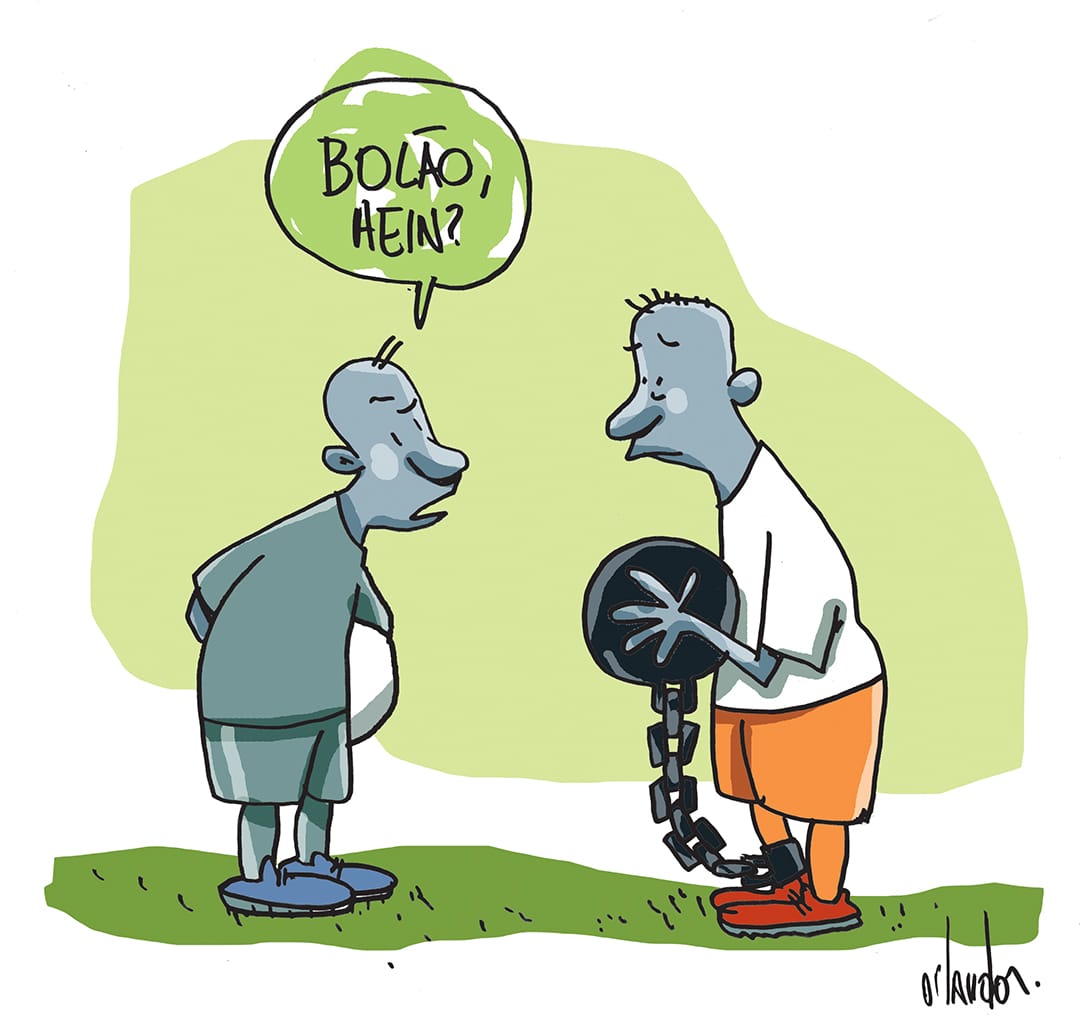It's no longer enough to be a star. Soccer demands role models.

Soccer is changing dramatically. And I'm not talking about rules, tactical schemes or athletic performance. We are experiencing a change in consciousness. If we compare the case of goalkeeper Bruno and the case of former athlete and coach Cuca with the trial of Daniel Alves and the recent arrest of Robinho, it is clear that we are living in new times. And since soccer is not a bubble, we can say that this change reflects values and behaviors that are becoming unacceptable off the pitch. The image of the winning footballer, of the star who achieves great results, can be summarily destroyed by off-field misconduct. This is far more devastating than missing a penalty in a championship final.
 N
N
n the past, the image of footballers was associated with a culture of indulgence, naughtiness and extravagant behavior, with frequent cases of scandals involving alcohol, parties, drugs and uncontrolled behavior. It was common to see players as controversial figures, getting involved in controversial situations that often tarnished their reputations and the image of the sport. But none of this shook them. On the contrary, it was common to say that they were stars, not saints. After all, clubs and fans only cared that the players played well; off the pitch it was something else.
However, with the increase in media coverage, public scrutiny and commercial pressures, footballers have been increasingly required to give importance to a positive public image. They are considered not only athletes, but also role models and icons for fans, especially the younger generations.
As a result, many clubs have implemented strict codes of conduct and education programs to guide players on proper behavior and responsibility off the field. Players are encouraged to get involved in social and charitable activities, demonstrating a commitment to community and social responsibility.
What's more, social media plays an important role in the way players are perceived by the public. They have the ability to communicate directly with fans and control their own narrative, but they are also subject to constant judgment and can face repercussions for inappropriate behavior.
The fact is that teams, if they aren't already doing so, will have to do so soon. Try not just to have stars, but people who represent the club on and off the pitch. Not least because in modern soccer, which is so physical and tactical, it's no longer possible for players to go about their daily lives without thinking like high-performance athletes. There's no room for a professional athlete with an amateur personal life. The figure of the genius of the penalty area who, when he left the club, occupied himself with all sorts of activities that were detrimental to his performance, such as alcohol, tobacco and sleepless nights, simply no longer exists. Just look at Cristiano Ronaldo, who is much more revered as a world idol for his stubbornness, athleticism and power than for his genius moves.
This week the Argentine courts ordered the house arrest of players from the Vélez Sarsfield club for sexual abuse. Manchester United player Antony is facing charges of assault. These cases reveal one truth: soccer will probably lose stars. But society as a whole will gain players who represent not only the team, but values that can inspire others. Examples such as Zico, idolized to this day by fans all over the world thanks to his genius on the pitch and his honesty off it, reinforce this point. When we think of players who are still active, we can't help but mention Messi and CR7 himself.
In addition, the influx of big money into sport changes the whole dynamic, as it reduces the importance of the result and increases the importance of the image. An example comes from the Robinho case itself, when sponsors pressured Santos to give up on signing him in 2020, following the publication of details of his sentence.
While the episode is sad in itself, it is nonetheless an opportunity for the CBF, soccer clubs and other world federations to take a strict stance on the conduct of their players, whether in terms of sexist and misogynistic relationships or racist behavior, which is also so common in the world of soccer. It's an opportunity not only to campaign, but also to create tough rules and enforce them against this kind of behavior, both on and off the pitch, on the part of fans, clubs and players.



1 Comment
Excellent article.